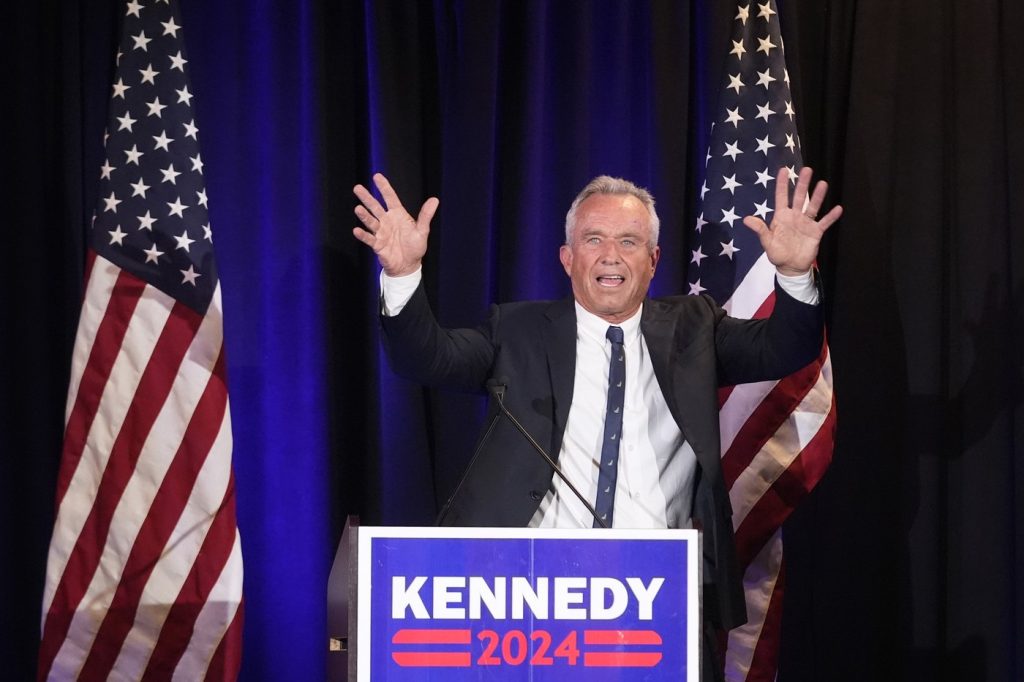MADISON, Wis. (AP) - Republican lawmakers in the battleground state of Wisconsin are seeking to amend state law to allow candidates to withdraw their names from the ballot, a change prompted by the recent experience of Robert F. Kennedy Jr. The candidate faced significant challenges when he attempted to remove his name from the presidential ballot last year after he dropped his independent bid and endorsed Republican Donald Trump.
Kennedy aimed to rescind his candidacy in Wisconsin along with six other swing states subsequent to his endorsement of Trump in late August. While he was successful in removing his name from the ballot in Pennsylvania, Georgia, North Carolina, Arizona, and Nevada, he faced hurdles in Michigan and Wisconsin. In Michigan, courts ruled that he had made his request too late, and Wisconsin's law is notably restrictive, permitting removal from the ballot only in the event of a candidate's death.
The Wisconsin law regarding ballot removal is considered one of the most stringent in the country, as per the National Conference of State Legislatures. Despite Kennedy's efforts to challenge his situation in both Wisconsin and Michigan, the U.S. Supreme Court denied his emergency request for removal without issuing a comment. This request came in the midst of early voting in both states.
In response to the challenges faced by Kennedy, two Republican lawmakers in Wisconsin have proposed a bill that would allow candidates for state and federal offices to withdraw their names from the ballot. However, this provision would not extend to major party candidates for president, a decision made due to the unique nomination processes for such candidates. Under the proposed legislation, candidates could formally withdraw by submitting a sworn statement to the Wisconsin Elections Commission along with a nominal fee.
For the bill to become law, it must pass through the Republican-controlled Legislature and receive approval from Democratic Governor Tony Evers, who has yet to comment on the proposal. Notably, Donald Trump won the state of Wisconsin as well as Michigan even with Kennedy's name remaining on the ballot. The vote tally showed that Kennedy garnered fewer than 18,000 votes in Wisconsin, amounting to roughly 0.5% of the total. In Michigan, he received about 27,000 votes, also around 0.5% of the total. Trump's margins of victory were approximately 29,000 votes in Wisconsin and about 80,000 votes in Michigan.
In related news, Trump has nominated Kennedy to lead the Department of Health and Human Services, further intertwining their political careers. The developments surrounding Kennedy's ballot status highlight ongoing discussions about electoral laws and the influence of independent candidates in closely contested races.










